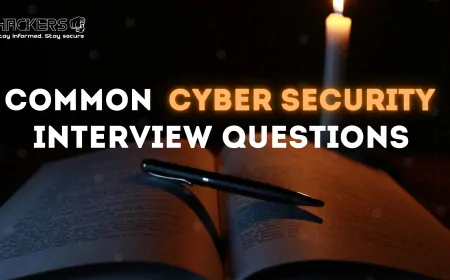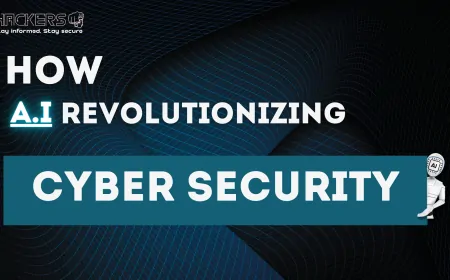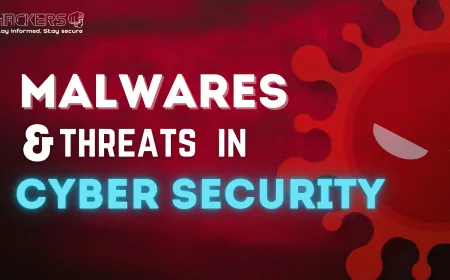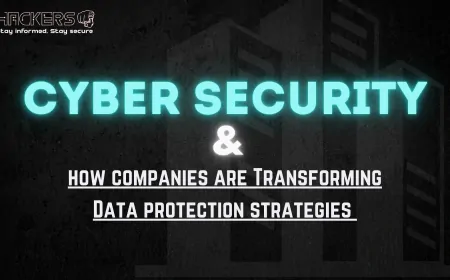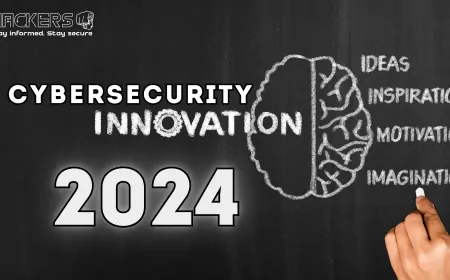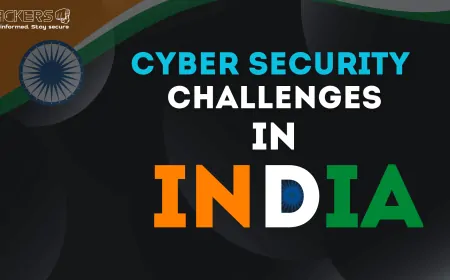What is The Difference Between a Hacker And a CyberSecurity Professional?
Discover the key differences between hackers and cybersecurity professionals. Learn about their distinct roles, intentions, techniques, and legal boundaries. Understand how ethical hackers and cybersecurity experts work to protect digital systems and data from threats and breaches.
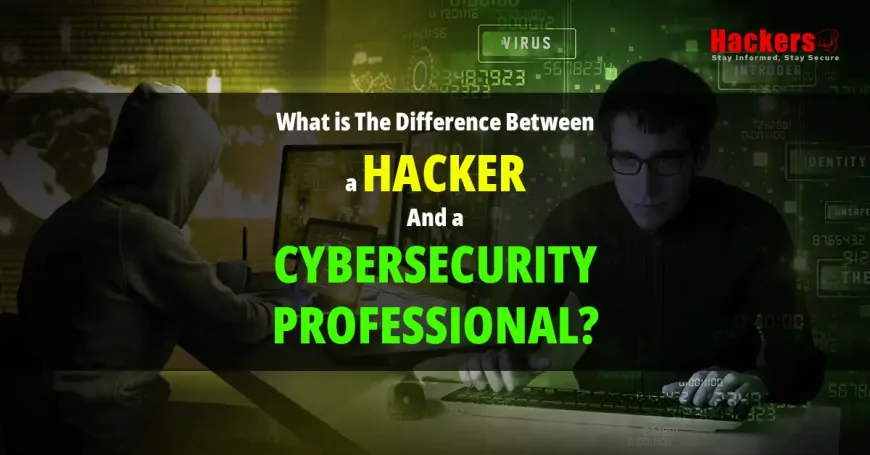
Introduction
In the realm of digital security, the terms "hacker" and "cybersecurity professional" are often used interchangeably, but they represent fundamentally different roles and intentions. While both operate within the domain of computer systems and networks, their objectives, methods, and ethical boundaries are distinct. Hackers, depending on their intent, can either disrupt systems or seek to uncover vulnerabilities. On the other hand, cybersecurity professionals work proactively to defend against such disruptions and ensure the safety of digital assets. This article delves into the key differences between hackers and cybersecurity professionals, shedding light on their roles, skills, and the impact they have on digital security.
The terms "hacker" and "cybersecurity professional" are often misunderstood, with some people using them interchangeably. However, there are significant differences between the two, primarily in terms of their intentions, methods, and roles within the digital landscape. Here's a detailed comparison to help clarify these distinctions:
1. Intent and Purpose
Hacker: A hacker is someone who exploits computer systems, networks, or software for various purposes. Hackers can be categorized into different types based on their intentions:
- Black Hat Hackers: These individuals engage in illegal activities, such as stealing data, deploying malware, or causing disruptions for personal gain or malicious intent.
- White Hat Hackers: Also known as ethical hackers, these hackers use their skills to identify and fix security vulnerabilities. They work legally, often with the permission of the system owner.
- Grey Hat Hackers: These hackers operate in a grey area, sometimes breaking into systems without permission but without malicious intent, often to expose vulnerabilities.
Cybersecurity Professional: A cybersecurity professional is dedicated to protecting systems, networks, and data from unauthorized access, attacks, or damage. Their role is proactive, aiming to prevent breaches before they occur. They implement security measures, conduct risk assessments, monitor systems for suspicious activity, and respond to incidents to minimize damage.
2. Legal and Ethical Boundaries
-
Hacker: Hackers, particularly black hat hackers, often operate outside the boundaries of the law, engaging in activities that are illegal and unethical. Even grey hat hacking can cross legal boundaries if performed without authorization.
-
Cybersecurity Professional: Cybersecurity professionals adhere to legal and ethical standards. They work within the law and often have certifications that bind them to ethical codes of conduct, such as respecting user privacy and only testing systems with permission.
3. Skills and Techniques
-
Hacker: Hackers use a wide range of techniques, including social engineering, malware development, and exploiting vulnerabilities. They are often self-taught and may continuously learn and adapt to stay ahead of security measures.
-
Cybersecurity Professional: Cybersecurity professionals possess a broad set of skills that include threat detection, incident response, encryption, penetration testing, and security architecture. Their focus is on understanding and mitigating risks through defensive measures. They often undergo formal education and certifications, such as CISSP, CEH, or CompTIA Security+, to validate their expertise.
4. Tools and Resources
-
Hacker: Hackers use tools like exploit kits, password crackers, and network sniffers to find and exploit weaknesses. Black hat hackers may use tools specifically designed for illegal activities, while white hat hackers use similar tools but within a legal and ethical framework.
-
Cybersecurity Professional: Cybersecurity professionals use tools designed for defense, such as firewalls, intrusion detection systems (IDS), security information and event management (SIEM) systems, and vulnerability scanners. Their goal is to monitor, detect, and prevent attacks.
5. Goals and Outcomes
-
Hacker: The goals of a hacker vary based on their type. Black hat hackers seek personal gain, whether financial, political, or reputational, at the expense of others. White hat hackers aim to improve security by finding and fixing vulnerabilities.
-
Cybersecurity Professional: The primary goal of a cybersecurity professional is to safeguard information and maintain the integrity, confidentiality, and availability of systems. Their work ensures that individuals, businesses, and governments can operate securely in the digital world.
Conclusion
Understanding the difference between hackers and cybersecurity professionals is crucial in navigating the complexities of digital security. Hackers, whether driven by malicious intent or curiosity, operate with varying goals that can range from personal gain to ethical improvement of systems. In contrast, cybersecurity professionals are dedicated to protecting and fortifying digital environments against such threats. Their work ensures the integrity, confidentiality, and availability of information and systems. By recognizing these differences, organizations and individuals can better appreciate the role of cybersecurity professionals in maintaining a secure digital landscape and safeguarding against the evolving threats posed by hackers.
While hackers and cybersecurity professionals may share some technical skills and tools, their intentions and approaches are fundamentally different. Hackers, particularly black hats, are driven by personal gain or malice, often operating outside the law. In contrast, cybersecurity professionals work to protect and defend against these threats, using their skills to create a safer digital environment. Understanding the distinctions between these roles highlights the critical importance of cybersecurity professionals in safeguarding our increasingly digital world.
FAQs
1. What defines a hacker in the context of cybersecurity?
A hacker is someone who uses technical skills to gain unauthorized access to systems, networks, or data. Hackers can have various motives, including malicious intent (black hat hackers), ethical goals (white hat hackers), or a mix of both (grey hat hackers). Their actions can range from exploiting vulnerabilities to discovering and fixing security issues.
2. What is the role of a cybersecurity professional?
A cybersecurity professional is dedicated to protecting computer systems, networks, and data from unauthorized access, attacks, and damage. Their responsibilities include implementing security measures, monitoring for threats, conducting risk assessments, and responding to security incidents to ensure the integrity and confidentiality of information.
3. How do hackers and cybersecurity professionals differ in their approach to security?
Hackers often seek to exploit vulnerabilities for various reasons, including personal gain or curiosity. In contrast, cybersecurity professionals proactively work to identify and fix these vulnerabilities to prevent attacks. While hackers may sometimes discover security flaws, cybersecurity professionals use this information to enhance protection and prevent breaches.
4. Are all hackers illegal or unethical?
Not all hackers engage in illegal or unethical activities. Black hat hackers engage in malicious activities for personal gain or to cause harm. White hat hackers, also known as ethical hackers, work with permission to find and fix security vulnerabilities. Grey hat hackers operate in a more ambiguous space, sometimes identifying flaws without authorization but typically without malicious intent.
5. What kind of training or qualifications do cybersecurity professionals have?
Cybersecurity professionals often have formal education in computer science or related fields and hold certifications such as Certified Information Systems Security Professional (CISSP), Certified Ethical Hacker (CEH), or CompTIA Security+. These qualifications demonstrate their expertise and adherence to ethical standards in cybersecurity.
6. How do hackers and cybersecurity professionals impact organizations differently?
Hackers, particularly those with malicious intent, can cause significant harm to organizations by stealing data, disrupting operations, or compromising systems. Cybersecurity professionals, on the other hand, work to prevent such damage by implementing protective measures, monitoring for threats, and responding to incidents to ensure the organization’s digital security.
7. Can cybersecurity professionals use hacking techniques?
Yes, cybersecurity professionals often use techniques similar to those employed by hackers, such as penetration testing and vulnerability scanning, to identify and address security weaknesses. However, they do so within a legal and ethical framework, with the goal of improving security rather than exploiting it.
8. How do hackers and cybersecurity professionals handle legal and ethical considerations?
Hackers, especially black hat hackers, often operate outside the boundaries of the law and ethical norms. Cybersecurity professionals adhere to legal and ethical guidelines, working within established frameworks and with proper authorization to protect systems and data. They are bound by codes of conduct that emphasize respect for privacy and legal compliance.
9. What tools and techniques are used by hackers and cybersecurity professionals?
Hackers use tools like exploit kits, malware, and password crackers to compromise systems. Cybersecurity professionals use defensive tools such as firewalls, intrusion detection systems (IDS), and security information and event management (SIEM) systems to protect against these threats and monitor for suspicious activity.
10. How can understanding the difference between hackers and cybersecurity professionals benefit individuals and organizations?
Understanding the distinction helps individuals and organizations better appreciate the role of cybersecurity professionals in safeguarding digital assets and maintaining security. It also clarifies the potential risks posed by hackers and the importance of employing ethical practices in cybersecurity to protect against threats.
What's Your Reaction?





















